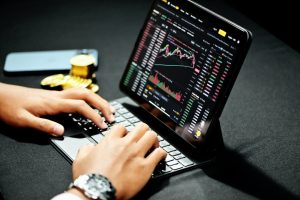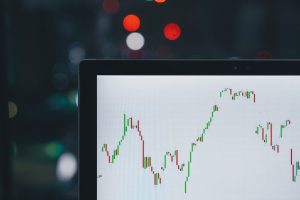Leverage is a powerful tool that enables traders to control a larger amount of capital than they would otherwise be able to. In forex trading, leverage allows traders to trade with borrowed funds, increasing their potential profits while also increasing their potential losses. It is important to understand how leverage works and how it can affect your forex account before using it in your trading strategy.
What is leverage in forex trading?
Leverage is the use of borrowed funds to increase the size of a trade. In forex trading, leverage is typically expressed as a ratio, such as 50:1 or 100:1. This means that for every dollar a trader has in their account, they can control $50 or $100 in the forex market.
For example, if a trader has $1,000 in their forex account and uses 50:1 leverage, they can control up to $50,000 in the forex market. If they make a profit of 1% on their trade, they would earn $500 instead of $10 if they had only used their initial $1,000 capital.
However, leverage also increases the risk of losses. If the trade goes against the trader, their losses will also be magnified by the same factor as the leverage used. For example, if the trader in the above scenario loses 1% on their trade, they would lose $500 instead of $10.
How does leverage affect my forex account?
Leverage can have a significant impact on your forex account in both positive and negative ways. It can increase your potential profits but also increase your potential losses. It is important to understand the risks involved and manage your risk accordingly.
Increased profit potential: The main advantage of using leverage is that it can increase your potential profits. By controlling a larger amount of capital, you can potentially make more money than you would with just your initial investment. This can be especially beneficial in a market with high volatility, where price movements can be significant.
Increased risk of losses: On the other hand, leverage also increases your potential losses. If the trade goes against you, your losses will be magnified by the same factor as the leverage used. This means that you could potentially lose more money than you have in your account, leading to a margin call or even a complete loss of your account.
Margin requirements: When using leverage, you will also be required to maintain a certain level of margin in your account. Margin is the amount of money required to open and maintain a position in the forex market. The margin requirement varies depending on the leverage used and the currency pair traded. If your account falls below the required margin level, you will receive a margin call and may be required to deposit additional funds to maintain your position.
Risk management: To manage the risks associated with leverage, it is important to have a solid risk management strategy in place. This includes setting stop-loss orders to limit your losses, using proper position sizing, and avoiding over-leveraging. It is also important to have a clear understanding of the market and the currency pairs you are trading, as well as keeping up with news and events that could affect the market.
Conclusion
Leverage can be a useful tool in forex trading, but it also comes with increased risk. It is important to understand how leverage works and how it can affect your forex account before using it in your trading strategy. By managing your risk and using proper risk management techniques, you can potentially increase your profits while minimizing your losses.





